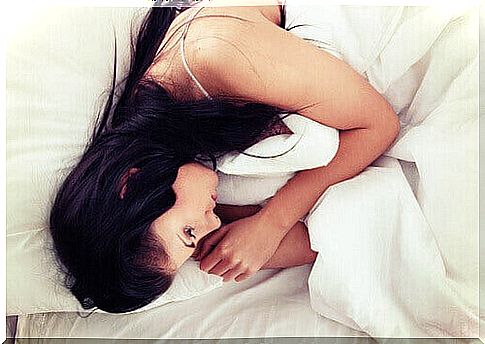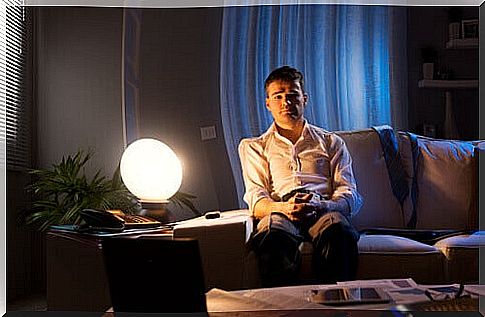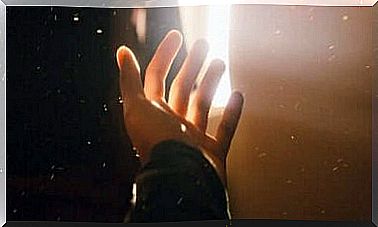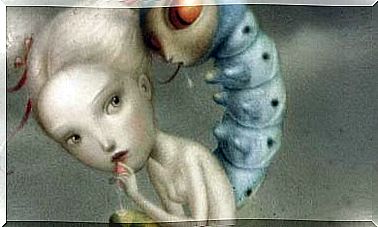Insomnia: A Nocturnal Monster

Many children are afraid of the darkness and the monsters that can hide in it. Monsters that hide under the bed, kidnap you while you sleep or yell at you if you get up at night and bump into them. Fortunately, these childhood monsters are not real, but there is a real nocturnal monster that appears for both children and adults: insomnia, or insomnia as it is also called.
Insomnia is a sleep disorder. There are two different types of sleep disorders: dyssomnia and parasomnia. In dyssomnias, the quality and schedule of sleep are affected. In parasomnias, abnormal things happen while you are sleeping, such as nightmares. Insomnia should therefore be categorized as dyssomnia.
Although most people are familiar with the idea of “good and bad sleepers” as well as different sleep patterns (being an evening or morning person), there are clear indicators of insomnia. The most common and obvious sign is the discomfort the person experiences in life due to lack of sleep, which occurs due to various factors, usually related to his own habits.

Insomnia is a sleep disorder that falls into the category of dyssomnias, where there is a persistent difficulty or inability to fall asleep and remain asleep. These people also tend to wake up early after falling asleep late.
Because insomnia is a dyssomnia, the people in question do not experience strange phenomena when they actually sleep, but struggle with the amount, quality and schedule of sleep.
To distinguish between insomnia and other similar ailments, you must first get to know them. Although all sleep disorders share the same main problem, they do not share causes and solutions. Let’s list a few sleep disorders:
- Disorders associated with breathing while sleeping, including apnea and alveolar hypoventilation.
- Hypersomnias such as Kleine-Levin syndrome.
- Narcolepsy.
- Problems related to one’s circadian rhythm, such as delayed sleep, jet lag, shift work, etc.
- Unspecified conditions, such as restless legs syndrome and nocturnal myoclonus.
- Disorders linked to the consumption of substances that affect the quantity and quality of sleep (caffeine, drugs, drugs, etc.).
- Secondary sleep disorders linked to other ailments or diseases.
Once you have dismissed all of these other causes, you can be sure that you are suffering from insomnia that is not caused by any other organic causes or psychological disorders. This is a nocturnal monster that sometimes develops as a result of depression, which should therefore be treated in a different way than isolated insomnia.
Lack of sleep can be extremely difficult. Not only because you are tired all the time, but because the fatigue also results in apathy, lack of concentration and irritability. Getting insufficient sleep has a direct impact on your energy levels for obvious reasons, which can affect your work and your relationships.

Lack of sleep can also affect your reaction time, your learning and your memory. Although many acclaimed people have described themselves as night people, do not be misled. Even if they do not sleep at night, they can get enough sleep during the day, even if it is not common among the population.
Also remember that some jobs have flexible schedules: indulging in writing is not the same as driving a bus. In one case it is not so bad to lose sleep, while in the other it can have fatal consequences.
If you experience a series of episodes of insomnia where you can not sleep for days, your regular doctor may prescribe benzodiazepines or sleeping pills. The latter are preferable because they last for around five hours, resulting in less risk of addiction.
However, these drugs are just patches for insomnia because they are caused by many different environmental and behavioral factors. Therefore , it is best to talk to a clinical psychologist with experience in cognitive behavioral therapy for insomnia. The most common techniques they use are:
- Stimulus control : this involves controlling the temperature and noise levels of the place where you sleep, as well as avoiding spending a lot of time here with other activities, such as studying or watching movies. However, it is recommended to read before bedtime as it is an activity that promotes sleep. However, do not read in bed.
- Sleep restriction: this is a technique created by Spielman, which involves limiting the number of hours of sleep for a few days, until the person becomes exhausted and falls asleep at a better time. Sleep should not be limited to less than four hours.

- Paradoxical intent: this involves contradicting your desires. If you think you should sleep, think instead that you need to stay awake. It has been demonstrated that this paradoxical cognitive struggle will ultimately induce sleep.
- Relaxation techniques: such as autogenic training and progressive relaxation.
- Sleep hygiene: to improve education regarding good sleep habits (reduce caffeine intake, exercise, get nutrition, avoid alcohol, etc.).








